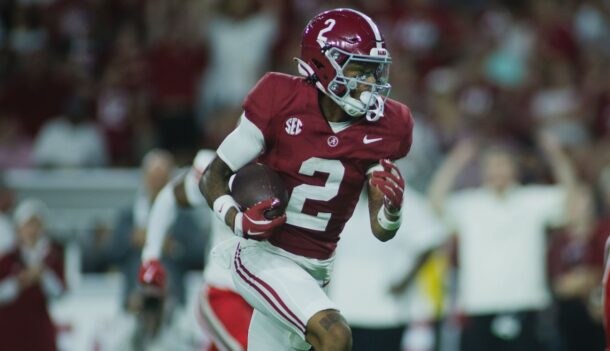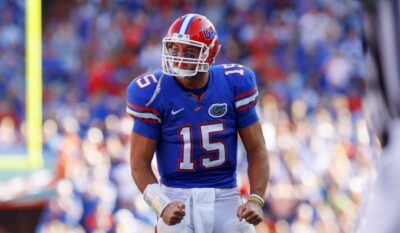SEC’s director of officials evaluates calls in LSU-Texas A&M game
By Keith Farner
Published:
The officiating in the LSU-Texas A&M game came under heavy scrutiny, but the top administrator from the SEC has said this week that the prevailing narrative is not accurate.
“There has been some narrative out there that this crew really had a bad game,” Director of Officiating Steve Shaw said in a phone interview with The Advocate. “We haven’t finished our film grading — by Wednesday night we have all the film grades in.
“But this crew did not have a horrible or bad game, just some tough plays to deal with.”
One of the more controversial plays came when QB Kellen Mond bobbled a snap and dropped to a knee with 36 seconds remaining and LSU up 31-24. The ball was then intercepted by LSU’s Grant Delpit, and the play ended with 29 seconds remaining. After a review, Mond was ruled down for an 8-yard loss and a 10-second runoff set the clock at 26 seconds.
“He picks up the nose of the ball, which is odd,” Shaw said. “But he got firm control. He knee is down, then he continues to come up.”
That play comes down to whether a whistle was blown. Shaw defended the call and said because of the quick nature of the play, they had to review to make sure Mond was indeed down.
“You have to be 1,000 percent sure before you blow your whistle,” Shaw said.
Another call came when Mond spiked a ball with just seconds remaining, and Shaw confirmed that the correct call was made, because he had enough time remaining.
“If there is 3 or more seconds, he can spike the ball and his team can get another play,” Shaw said.
The next issue came down to a play in the first overtime, and if LSU could have ensured a review was made on a catch by TE Jace Sternberger, who was hit immediately by Delpit and lost the ball. The pass was ruled incomplete. LSU coach Ed Oregon nearly called a timeout to make sure of a review, but decided against it.
“He begins to catch the ball and he gets hit before he has it tucked away,” Shaw said. “By rule, this is incomplete. He needs to tuck the ball away or make an act common to the game. A football catch. He does not complete the catch. … Replay reviews every play. We don’t stop every play. It’s similar to every scoring play. Every one is reviewed, but a lot of times we don’t stop the game and go to the headset. Most are confirmed without having to stop the game.”
One area of improvement came with a pass interference called on DB Greedy Williams in the seventh overtime. After he was flagged for PI, the official then called him for unsportsmanlike conduct, and threw his hat for the second call.
Shaw said the pass interference penalty could have been better handled. He also did not like seeing the official have to throw his hat for the second penalty on Williams.
“The defender jumps the route and there is a slight tug,” Shaw said. “Technically it’s probably pass interference, but in this situation I’d like to see more (before a penalty is called). Process the play longer.
“Unfortunately, the official didn’t carry two flags and threw the hat, and I didn’t like the look of that. But from the dialog between the player and official, the foul was warranted.”
A former newspaper veteran, Keith Farner is a news manager for Saturday Down South.







